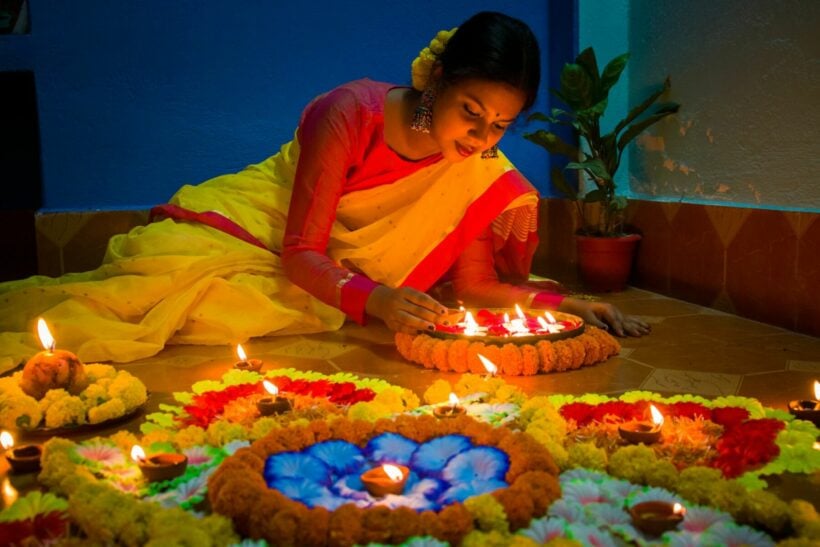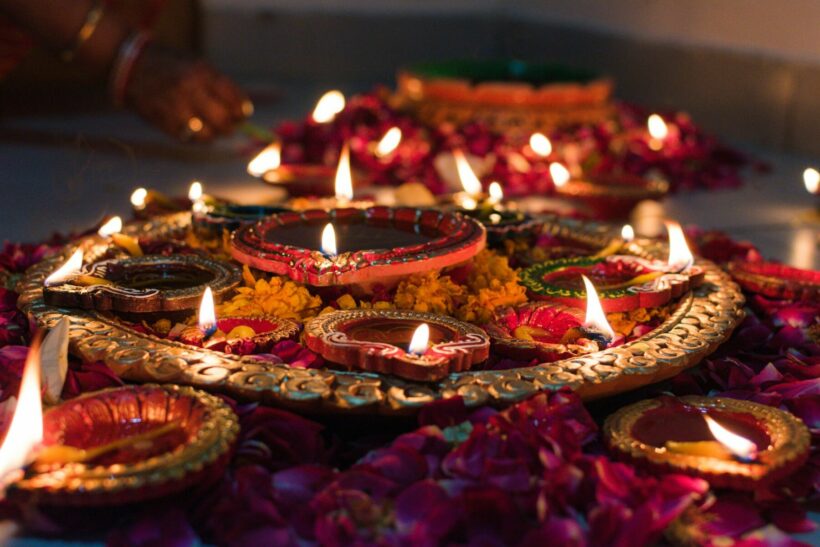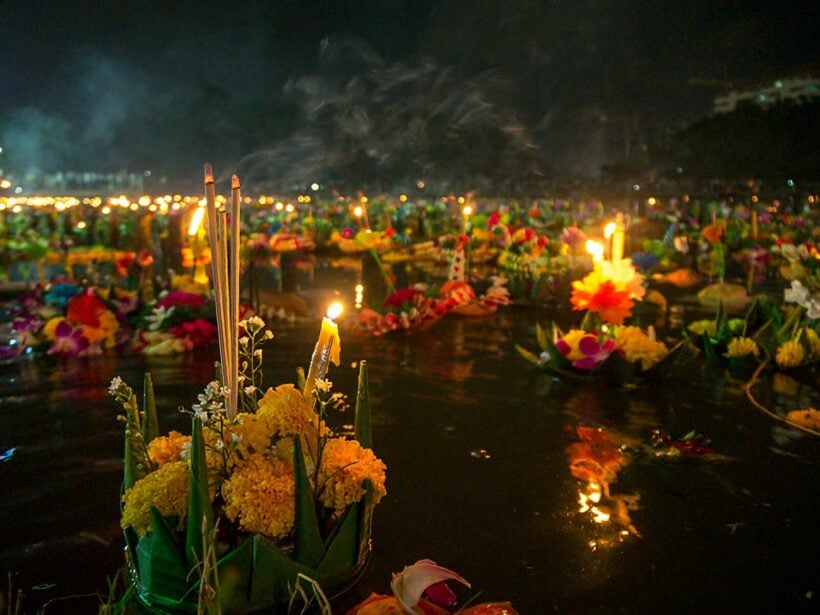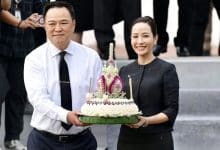Diwali 2022: What you need to know and where to celebrate in Thailand

Diwali is right around the corner! Also known as the Festival of Lights, it usually falls sometime between October and November. This year, Diwali will be celebrated on Monday, 24 October 2022. It’s one of the biggest festivals in India that is also celebrated in different corners of the world, including Thailand. But did you know what this festival is all about and how it’s celebrated in Thailand? Here’s everything you need to know about Diwali.
What is Diwali?

Diwali is a festival of lights originating in India. Although most people think of Diwali as a Hindu festival, it’s actually celebrated all across India by people of other religions, including Jains, Sikhs, and some Buddhists. Diwali symbolises different historical events and stories for each religion. Thus, there’s no single origin story.
Even in Hinduism alone, there are several versions of Diwali’s story, which depends on where you are in Thailand. In northern India, it signifies the return of Rama and Sita to Ayodhya after defeating Ravana by lighting rows of clay. In western India, Hindus celebrate the festival to honour the day that Lord Vishnu banished King Bali to the underworld. And in South India, it’s celebrated as the day that Lord Krishna defeated the demon Narakasura. For certain Hindu communities, Diwali also marks the start of a new year.
Jains, Sikhs, and Buddhists have their own version of Diwali stories. For Jains, the festival is celebrated as the day that Lord Mahavira, the last Tirthankara of the Jain religion, reached a state of nirvana or eternal bliss, also known as Moksha. Sikhs, on the other hand, observe the festival as the day that the sixth guru Hargobind Singh was released from prison after 12 years of imprisonment in 1619. And for Buddhists, Diwali commemorates the day Emperor Ashoka converted to Buddhism.
But although each religion has its own story behind Diwali, they all eventually reflect new beginnings and “the victory of light over darkness, good over evil, and knowledge over ignorance.” Moreover, people in India celebrate the festival with enthusiastic gestures, no matter what religion.
How is Diwali celebrated?

Diwali gets its name from the Sanskrit word Deepavali, which means “rows of lighted lamps”. Therefore, India is brightly illuminated with a lot of lights during the festival. From temples and houses to streets and stores, every nook and cranny of the country is brightly lit by LEDs, oil lamps, string lights, and candles.
The festival is celebrated for five days, with each day having its own significance. Of course, different religions have different rituals. But in general, people prepare for the main day by cleaning their houses and shopping for gold, silver, kitchen utensils, and clothes on the first day. On the second day, people draw colourful designs on the floor of their house (known as Rangoli) to welcome the goddess of wealth and prosperity, Lakshmi.
The main celebrations take place on the third day. On this day, people celebrate by visiting temples to offer prayers to their gods. Hindus honour Lakhsmi to bless their home with wealth and prosperity. Families then gather together for scrumptious feats that usually include various types of sweets. Fireworks are also an essential part of the celebration.
The fourth day of Diwali is often seen as the start of a new beginning, as well as a time to visit friends and relatives to exchange gifts and wishes. Finally, on the fifth day, brothers visit their married sisters.
Diwali and Loy Krathong

Thailand has its own festival of lights, known as Loy Krathong. There are several popular stories behind Loy Krathong. Some believe that it originated in Sukhothai, while others say that Nang Noppamas created the festival. However, many people also believe that the festival was influenced by Diwali. The story has it that people release krathongs into the water to commemorate the Buddha’s footprint that was left next to a revered river in India after his ascension to the skies and escape from the cycle of rebirth and death.
Where to go for Diwali in Thailand
In Thailand, Diwali is not a big festival. However, numerous restaurants, galleries, and hotels will celebrate the festival by offering special menus and events. Here’s where to go in Thailand if you want to join in the Diwali 2022 festivities:
White Oven Beach Society, SO Sofitel Hua Hin

To celebrate Diwali, the White Oven and Beach Society in SO Sofitel Hua Hin offers a limited-time Indian menu. You can enjoy a feast of delicious classics like Butter Chicken, Chicken Tikka, and many more. The special menu is only available for lunch and dinner from 22 to 24 October 2022.
Rembrandt Hotel & Suites, Bangkok
For all the party animals in Bangkok, Rembrandt Hotel & Suites is throwing the biggest Diwali party in Bangkok at its Grand Ballroom. On 22 October 2022, starting at 21:00, you can dance to music by DJ Dev and DJ Sagar. Moreover, there’ll be Mexican and Indian live stations, as well as a full bar. The entrance is 300 THB and includes 2 drinks.
Bangkok Island
Want to dance to your favourite Bollywood Songs? Join the Diwali cruise party at the Bangkok Island boat. You’ll get to enjoy Bollywood music, hip-hop, and EDM remixes by DJ Kriszd and supported by King Waari as the MC. To make it even more festive, there’ll be delicious food from the Southern Indian kitchen on board. The party will start at 19:00 on 28 October 2022, so be sure to book your tickets now.
Charcoal Tandoor Grill & Mixology, Bangkok

The famous Indian restaurant Charcoal Tandoor Grill & Mixology in Bangkok invites you to celebrate the festival with a vegan (1,290 THB) and non-vegan (1,490 THB) 3-course Diwali Dinner from 24 to 26 October 2022. Aside from the mouthwatering feast, there’ll be fantastic entertainment, including Bollywood Dancers and Henna artists.
Little India, Bangkok
Head to the Phahurat area, also known as Little India, on 22 and 23 October 2022 for a Diwali Festival. The festival is held to support Thai people of Indian descent. Furthermore, it aims to help Thais to learn about the culture of Thai people of Indian descent and to encourage Indian tourists to travel to Thailand.
Make sure to add these places on your list if you want to experience the Diwali celebration in Thailand.
Latest Thailand News
Follow The Thaiger on Google News:


























